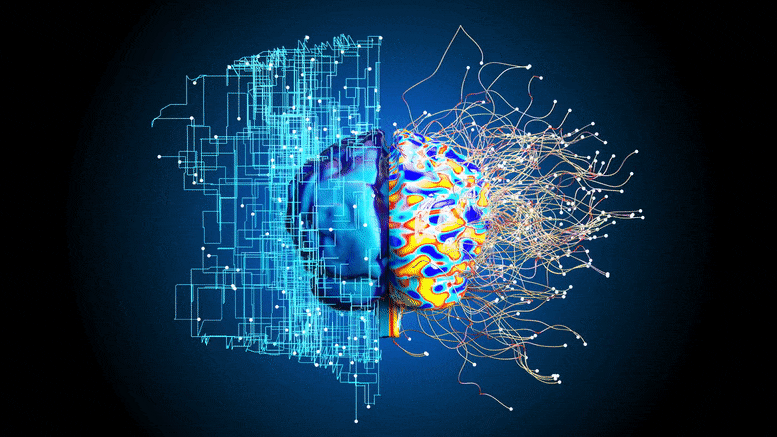AI Agents Certification Program: Learn to build and deploy AI Agents, including with expert-led live sessions. Scholarships are Available. Upskill yourself Now
Hello!!
Welcome to the new edition of Business Analytics Review!
In today’s edition, we are going to discuss one of the theoretical concept of artificial intelligence called Artificial General Intelligence (AGI). AGI matches or surpasses human cognitive abilities across a wide range of tasks, including those it has not been specifically trained to perform.
Unlike narrow AI, which is designed for specific tasks like image recognition or language translation, AGI, once a reality, would exhibit human-like adaptability, reasoning, and self-learning capabilities.
Key Characteristics of AGI
General Problem-Solving Ability: AGI adapts to new situations, solving diverse problems without explicit training
Learning and Adaptability: AGI learns from experience, generalizing knowledge to new domains
Reasoning and Understanding: AGI exhibits advanced reasoning, comprehending complex concepts and contexts
Self-Awareness and Consciousness: AGI might include self-awareness, though this remains a debated aspect
Autonomy: AGI operates independently, making decisions based on its environment and goals
How AGI Differs from Narrow AI
Today’s AI systems, such as ChatGPT, Perplexity, Grok, Google Gemini, DeepSeek, etc., are examples of narrow AI. They are designed to assist with specific tasks - like answering questions or analyzing text - based on patterns in data they’ve been trained on. They don’t “think” outside their scope or spontaneously learn unrelated skills. AGI, on the other hand, wouldn’t be constrained by a narrow domain. Imagine an AGI that could start as a chatbot, then teach itself quantum physics, compose a symphony, and negotiate a peace treaty - all without being reprogrammed.
Pathways to AGI
There’s no consensus on how AGI will be achieved, but several approaches are being explored:
Scaling Up Current Models: Some believe that enhancing existing machine learning models (like large language models or neural networks) with more data, computational power, and refined architectures could eventually lead to AGI
Cognitive Architectures: Others propose building systems modeled on human cognition, integrating memory, reasoning, and perception into a unified framework
Hybrid Systems: Combining symbolic AI (rule-based reasoning) with statistical methods (like deep learning) might bridge the gap between narrow expertise and general intelligence
Emergence from Complexity: A more speculative idea is that AGI could emerge unexpectedly as systems grow more interconnected and complex
Challenges in Developing AGI
Technical Hurdles: Current AI lacks the ability to transfer learning effectively across domains or reason abstractly at a human level. For example, a model trained to play Go can’t easily pivot to playing poker without significant retraining
Understanding Intelligence: We don’t fully grasp what human intelligence entails - biological, psychological, and philosophical questions remain unanswered, making it hard to replicate
Safety and Control: AGI raises concerns about unpredictability. A system with human-level autonomy might act in ways that conflict with human values if not properly aligned
Resource Demands: Building AGI could require astronomical computational resources, energy, and time, posing practical limitations
Currently Ongoing Upskilling Programs
You may upskill yourself in the current fields of AI here:
AI Agents Certification Program: Learn to build and deploy AI Agents, including with expert-led live sessions. Scholarships are Available
Recommended Video
The video discusses Artificial General Intelligence (AGI), exploring its potential in areas like customer service, coding, autonomous vehicles, healthcare, education, manufacturing, finance, and research. AGI aims to surpass human cognition, but current AI needs improvements in visual perception, audio understanding, problem-solving, and emotional intelligence to achieve this goal.
Trending in AI and Data Science
Let’s catch up on some of the latest happenings in the world of AI and Data Science:
Google DeepMind’s new paper on responsible artificial general intelligence (AGI)
Google DeepMind releases new paper predicting human-like AGI by 2030, warning of existential risks that could permanently destroy humanity
Microsoft gives Copilot its own memory
Microsoft's Copilot now has personalized memory, recalling user details across conversations for tailored responses, alongside new AI agent capabilities and personalized features
Meta releases new AI model Llama 4
Meta releases Llama 4, featuring Scout and Maverick models, as its most advanced AI yet, with multimodal capabilities and open-source availability
Tool of the Day: Pictory AI
Pictory AI is an AI-powered platform that enables users to quickly create and edit professional-quality videos from scripts, blogs, and long videos, with features like automated video summaries, transcription, and captioning.
Key Features:
Automated Video Summaries: Pictory AI can automatically generate short, engaging video summaries from longer content, such as webinars, podcasts, or articles.
Text-to-Video Conversion: The platform can transform scripts, blog posts, or articles into videos. It uses AI to match relevant visuals and music with the text, making it easy to create videos from written content.
Transcription and Captioning: Pictory AI provides automated transcription services, converting spoken content into text. It also offers captioning features, which can improve video accessibility and engagement.
Upgrade to our PRO version for $11 & enjoy exclusive benefits, such as:
📈 Premium Content Delivered Daily
🎓 FREE Entry to All Webinars, Masterclasses & Weekly eBooks
💸 50% OFF on All Live Bootcamps & Courses







Why do I feel like this article was written by AI? 😂🫶🏼
This reads hyper-aggressive like an AI leading a best thought--brain asks why